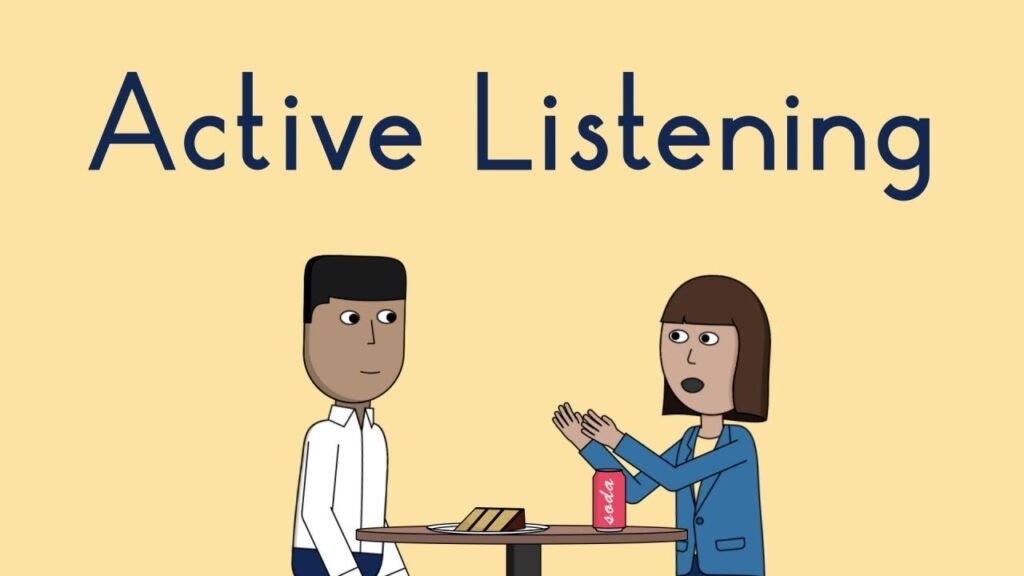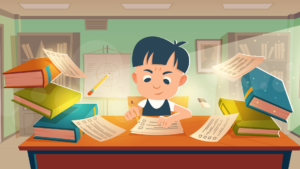While learning any language, the most important and the primary skill is listening. Today let us discover the way to improve listening skills in French language.
How do benefit from having French listening skills?
There are several benefits of listening French, such as it improves communication, helps to develop good vocabulary pronunciation and grammar skills and it helps in communicating with native speakers which can be an advantage while travelling.
There are obstacles in whatever you learn disregard of any subject, especially while learning a foreign language, similarly while learning French language problems that occur while listening in French. The hardest part in French is to be able to understand what the native speakers are speaking. Let us discuss some points below.
Speed of speech– The native speakers speak so fast. It is difficult to catchup with their rapid speed. How can you learn to listen?
First you must listen to slow paced audios, after catching up with the basics you can slowly improve your speed and start exposing yourself to audios that have intermediate level of speed. The more you listen the more you can cope up with the speed. The best thing to do is to listen to various types of French speakers to understand and learn how they sound and pronounce.
Vocabulary and grammar– We often remain silent when we must speak French in little advanced way, it is because we fall short of vocabulary and grammar knowledge. Little knowledge of vocabulary and grammar can hinder comprehension, as learners may struggle to understand unfamiliar words and grammatical structures in spoken French.
You need to build a very strong base foundation of vocabulary and grammar through regular practice. Use vocabulary lists, online worksheets, flashcards, and language learning apps to expand your vocabulary. Review grammar rules and practice using them in context. Listen to audio materials that match with your current proficiency level to reinforce vocabulary and grammar concepts.
Lack of Context– While speaking French context plays major role to define what is being spoken. Without visual or creative options or information that have good content, learners may find it challenging to catch the meaning of words and phrases only based on audio acquisition.
Choose audio materials that provide context, such as dialogues, interviews, or podcasts with the transcripts. Listen and try to find out the clues such as tone of voice, intonation, and surrounding words.

Distractors and Noise– If the external distractions and background noise interferes in your listening practice it will be very hard to focus and concentrate, making it harder to understand the spoken French.
Create a calm listening environment by minimizing distractions and reducing background noise. Use headphones or earphones to block out external sounds. Practice active listening techniques, such as focusing on the speaker’s voice and ignoring unnecessary noise.
Fear and Anxiety– Fear is the main reason we delay our progress and learning. Fear of making mistakes or not understanding can create anxiety. This is the way we start losing the confidence and motivation in listening practice.
You must approach listening practice with a positive mindset and embrace mistakes as part of the learning process. Set realistic goals and celebrate progress, no matter how small. You need to divide the listening tasks into manageable steps and gradually keep increasing the difficulty as you build confidence. You can seek support from language learning communities or instructors to address anxiety and receive encouragement.
Accent and pronunciation recognition– One of the first obstacles learners face when studying French is mastering its unique sounds and pronunciation. French has various regional accents and pronunciation differences that may pose challenges for learners, it boasts a plethora of nasal sounds and tricky liaisons, which can be difficult for non-native speakers to learn accurately.
Expose yourself to a variety of French accents by listening to audio materials from different regions of France and Francophone countries. Focus on recognizing common pronunciation patterns and phonetic features. Practice shadowing technique (repeating after a speaker) to improve your own pronunciation and accent imitation. Incorporate activities like tongue twisters and pronunciation drills to help students develop their oral skills.
Example,
| “Un chasseur sachant chasser sait chasser sans son chien” A hunter who knows how to hunt can hunt without his dog- This tongue twister challenges the pronunciation of “ch” and “s” sounds, as well as the repetition of similar syllables. |
Related: Common Mistakes in French Language
There are challenges but you can follow the required strategies and solution to improve your listening skills. But how can you improve your listening, let us dive into interesting tips as below.
Listen Multiple Times
Listening just one time is not enough to fully understand spoken French. A good strategy is to find a podcast or YouTube video that you find interesting and listen to it multiple times. Because you will listen to it over and over, it is better to choose something around 10 to 15 minutes long. When you listen to it a second and third time, things you missed the first time become clearer. The more you listen the more you will pick up. Practice listening to audio materials multiple times to pick up additional details, improve your accent and get accustomed to sentence structure. Podcasts like coffee break french, RFI, Frenchpod101, innerfrench are some interesting podcasts that you can refer to. Youtube channels like Français Authentique, Easy French are best to check out.
Transcription/ dictation exercises
Transcription and dictation exercises are invaluable tools for enhancing your listening skills. By listening to audio recordings and transcribing what you hear, you sharpen your ability to recognize and understand the language. Similarly, dictation exercises involve listening to passages and writing them down word-for-word, allowing you to practice listening to comprehension and spelling simultaneously. These exercises not only improve your ability to differentiate individual words and phrases but also train your ear to recognize patterns such as intonation and rhythm. This exercise improves listening accuracy, spelling, and grammar skills.
To do– Listen to audio and write down what you hear, then compare it to the original text for reviewing. Dictation can be practiced at different difficulty levels, starting with short sentences or phrases and progressing to longer passages as proficiency increases.
Immersion/exposure
If you do a Google Search for French Listening Resources, you’ll bring up plenty of links. However, not all of them will be helpful. This is because many French learning sites have too much English material, at the beginner level. This is not going to add much to your French progress. Immersion is a powerful technique for learning languages, and that means minimizing any use of your native language as much as possible.
To do– Keep a language journal to take notes of new vocabulary, phrases, grammar rules. Find language speakers online, join language meetup groups.

Passive/active listening
Active listening involves listening with genuine interest and focus on the speaker’s words and emotions. While passive listening is simply to hear without any active participation or feedback.
Active listening is the key strategy in how to get better at listening. As it involves giving your full attention to the content, and actively trying to understand and process what’s being said. This approach is far more effective than passive listening, where it’s easy to let your brain wander and the French, you’re hearing just becomes a vague background noise.

To do– Listen actively is to silently repeat in your mind each word as you hear it. Some words you will immediately understand while others might not make sense, and you’ll have to let them go. With practice, you’ll start comprehending more words instantly.
| “C’est la fin des haricots” – This idiom means “it’s the last straw” or “it’s the end of the line.” |
Focus concentration/active engagement.
To maintain focus and actively engage with French listening material, eliminate distractions and immerse yourself fully in the content. To enhance focus and concentration during French listening, eliminate distractions and actively engage with the material.
To do– Take notes, ask questions, and visualize the dialogue or narrative to deepen your understanding and retention.
Feedback/correction
Constructive criticism helps identify areas for improvement and provides valuable insights into nuances of pronunciation and intonation. Seeking feedback and correction from native speakers or language instructors is crucial for improving French listening skills. Embrace constructive criticism to identify areas for improvement and refine your comprehension abilities.
To do– Seek feedback and correction from native speakers or language instructors, also teachers can guide you.
Use of technology
Today we have various online tools available to learn a language. Technology is a boon in language learning. Utilize tools such as language learning apps like duolingo, speech recognition software, and online resources to supplement French listening practice. These tools offer interactive exercises and right feedback to improve comprehension.
Regular Practice
Regular practice and reflection are key. To improve your listening skills, it is very important to keep consistency and regularity in practice. The more you practice the faster you can grasp the skill. Having a gap in between can minimize your motivation and interest. Hence it is necessary to continue the listening everyday even if it is for 10-15 minutes.
To do– Set aside dedicated time each day for listening activities and reflect on your progress and techniques used to refine your approach over time.
Related: From Bonjour To Fluency: A Step-By-Step Guide To Learn French Online.
Conclusion
Improving French listening skills requires consistent effort and a variety of strategies. Practice French listening regularly and reflect on your progress and techniques used. Set aside dedicated time each day for activities and evaluate your strengths and weaknesses to tailor your practice approach accordingly. Ultimately, patience, persistence, and a positive attitude are key to mastering French listening skills. By incorporating these strategies into your language learning routine and embracing the process with enthusiasm, you can make significant strides in your French listening comprehension abilities.
For those aspiring to excel in French, our platform LFE provides exceptional training. Whether you’re starting from scratch or aiming for fluency, start your language-learning journey confidently with us at LearnFrenchEnligne today.







